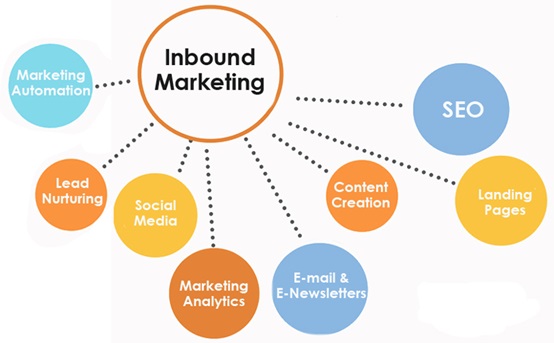Does Digital Marketing Work for All Businesses?

In the contemporary landscape of business, digital marketing has emerged as a crucial strategy for growth and brand visibility. With the proliferation of internet use and the increasing reliance on digital platforms, businesses across various sectors are leveraging digital marketing to reach their target audiences. However, the effectiveness of digital marketing can vary significantly depending on the nature of the business, its goals, and its target audience. This essay explores whether digital marketing works for all businesses by examining the various facets of digital marketing, its application across different industries, and the factors that influence its success.
Understanding Digital Marketing
Digital marketing encompasses a range of strategies and tactics that use digital channels to promote products or services. These channels include search engines, social media, email, content marketing, online advertising, and more. The primary goal of digital marketing is to connect with potential customers where they spend a significant amount of their time: online.
Key components of digital marketing include
Content Marketing: Creating and distributing valuable, relevant content to attract and engage an audience.
Social Media Marketing: Utilizing social media platforms to build brand awareness, drive traffic, and engage with customers.
Email Marketing: Sending targeted messages to individuals via email to promote products or services.
Pay-Per-Click (PPC) Advertising: Running paid advertisements on search engines or social media platforms.
Factors Influencing the Effectiveness of Digital Marketing
Industry Type and Business Model
The effectiveness of digital marketing often depends on the industry and business model. For example:
Retail and E-commerce: Digital marketing is highly effective in retail and e-commerce. Platforms like Instagram, Facebook, and Google Ads provide powerful tools for targeting consumers based on their interests, behaviors, and demographics. SEO and content marketing can also drive traffic to e-commerce sites, leading to increased sales.
Professional Services: For businesses offering professional services (e.g., law firms, consulting agencies), digital marketing strategies like SEO, content marketing, and LinkedIn advertising can be effective. These businesses can leverage content to demonstrate expertise and attract potential clients.
Local Businesses: Local businesses, such as restaurants or service providers, benefit from local SEO and Google My Business listings. Targeted local advertising on social media or through geo-targeted PPC campaigns can also drive foot traffic and local engagement.
Niche Markets: Businesses operating in highly specialized or niche markets may find digital marketing more challenging. The target audience might be smaller or harder to reach through conventional digital channels. However, niche-specific platforms and targeted content can still be effective if used strategically.
Target Audience
Younger Audiences: Platforms like TikTok and Instagram are popular among younger demographics. Businesses targeting Gen Z or millennials may find success through influencer marketing, social media campaigns, and engaging content.
Business-to-Business (B2B) Audiences: B2B companies often target other businesses rather than individual consumers. LinkedIn is a valuable platform for B2B marketing, and strategies such as content marketing and email campaigns can help generate leads and build relationships.
Consumer Preferences: The effectiveness of digital marketing also hinges on understanding consumer behavior. For example, if a target audience prefers video content, investing in video marketing and YouTube advertising can be beneficial.
Budget and Resources
The budget allocated for digital marketing and the resources available can significantly impact its success. Smaller businesses with limited budgets may need to prioritize cost-effective strategies such as organic SEO and social media marketing, while larger businesses with more substantial budgets can invest in paid advertising, advanced analytics, and content creation.
Competitor Landscape
The level of competition in a given industry can influence the effectiveness of digital marketing. Businesses may need to invest in comprehensive strategies, including SEO, content marketing, and differentiated advertising, to gain a competitive edge.
Implementation and Strategy
The way digital marketing strategies are implemented can make or break their success. A well-planned and executed strategy tailored to the specific needs and goals of the business is more likely to yield positive results. Conversely, poorly executed campaigns or a lack of clear objectives can lead to wasted resources and ineffective marketing efforts.
Case Studies and Examples
Success Stories
Amazon: Amazon’s success in digital marketing is a prime example of its effectiveness for e-commerce giants. The company’s use of SEO, targeted advertising, and personalized recommendations has contributed to its dominance in the online retail space.
Challenges Faced
Traditional Businesses: Traditional businesses with limited online presence may struggle with digital marketing if they lack an understanding of online platforms or if their target audience is not actively engaged online. For instance, a local antique shop may find it challenging to compete with larger online retailers.
Niche Products: Businesses offering highly specialized products may face difficulties in reaching their target audience through broad digital marketing channels. However, niche-specific forums, communities, and targeted advertising can help address this challenge.
Evaluating the Suitability of Digital Marketing for Your Business
To determine whether digital marketing is suitable for your business, consider the following steps:
Define Your Goals: Clearly outline your business objectives and how digital marketing can help achieve them. Whether you aim to increase brand awareness, drive sales, or generate leads, having well-defined goals will guide your strategy.
Understand Your Audience: Conduct market research to understand your target audience’s online behavior, preferences, and demographics. This information will help tailor your digital marketing efforts to effectively reach and engage your audience.
Assess Your Budget: Evaluate your budget and allocate resources accordingly. Consider starting with cost-effective strategies and scaling up as you see positive results.
Choose the Right Channels: Based on your target audience and goals, select the digital marketing channels that are most likely to yield results. This may include SEO, social media, email marketing, or paid advertising.
Monitor and Adjust: Continuously monitor the performance of your digital marketing efforts and make adjustments as needed. Use analytics tools to track key metrics and optimize your strategies for better results.
Conclusion
Digital marketing has proven to be a powerful tool for businesses of all sizes and industries, but its effectiveness is not universal. Factors such as industry type, target audience, budget, competition, and implementation play a crucial role in determining how well digital marketing works for a particular business. By understanding these factors and strategically applying digital marketing techniques, businesses can harness the power of digital channels to achieve their goals and drive growth. While digital marketing may not be a one-size-fits-all solution, it offers a diverse array of strategies that, when tailored to the specific needs of a business, can deliver substantial benefits and competitive advantages.




